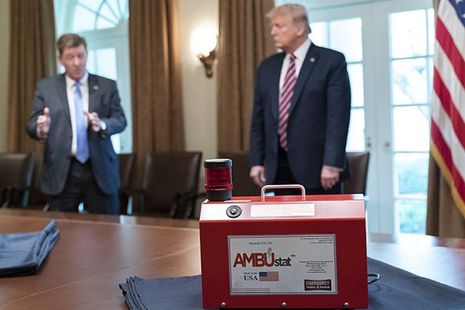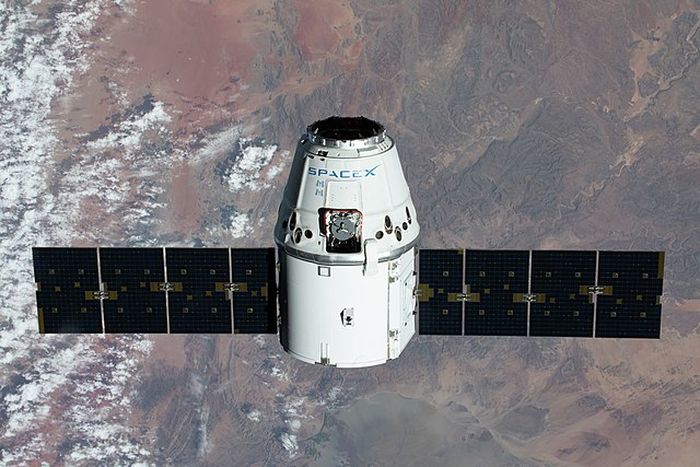How an administration is ruining science
Nessa Yip discusses the last six months in science in the wake of Trump’s decisions

Anxiety over the fate of science has only risen since the start of President Trump’s administration. We have seen America at the epicentre of the American president’s heavy-handed threats and felt its seismic waves globally. Unchecked, Trump remains astride his anti-DEI campaign, slashing grants and relegating hundreds of research projects to the graveyard. Subsequently, scientists both working with and in the US have faced unexplained project cancellations.
Under the guise of removing redundancies, key institutes and centres have seen their grants axed and institutes merged, or in some cases, eliminated. Trump’s 2026 budget seeks to cut thousands of projects funded by the US National Institute of Health (NIH) and more than 50% of the National Science Foundation’s (NSF) budget. The budget aims to terminate projects that fall under his perception of ‘woke’, such as climate research. He has no intention of equalising the already-distorted playing field, either: grant reviewers are let go if fingerprints are found on DEI efforts. Only three fields remain in his good books due to their promise in “maintaining [our] economic and national security,” says Victoria LaCivita, spokesperson for the White House Office of Science and Technology Policy: artificial intelligence, quantum computing and nuclear energy.
“Trump has made clear his position on climate change”
Since his first presidency, Trump has made clear his position on climate change. Targets of his budget cuts include the Department of Energy (DOE) and subsequently their investigation into clean energy, and the US National Oceanic and Atmospheric Administration (NOAA) which operates the National Weather Service (NWS). In light of the recent Texan flash floods that saw a death toll of 107, cuts to a key forecasting agency such as the NWS raise concerns especially for those living in flood-prone areas. Some suggest this is evidence of an ongoing plan to incrementally disarm the NWS until privatisation becomes inevitable.
Universities have not escaped his grip either. Columbia University and Harvard University were under fire for protests in support of Gaza, allegedly inciting “antisemitic violence and harassment”. The punishment? Federal grants worth millions being rescinded with a list of demands sent as warning. Harvard refused to comply, initiating a lawsuit against the administration for freezing its federal grants and deeming Trump’s further act of barring international student applicants in June 2025 as “unlawful”. However, updates reveal Harvard is prepared to spend up to $500m to settle the dispute, while Columbia has coughed up more than $200m. Restoration of frozen federal grants will come at the expense of academic freedom, namely the agreement to scrap DEI initiatives to ensure admissions are purely “merit-based”.
“Science in the US will struggle to flourish as we witness the American brain drain”
Efforts to influence Congress have been seen in the form of published correspondences and a conference held on 8th July 2025 titled The Things We’ll Never Know: A Science Fair of Canceled Grants. However, all hope is not lost for US-based scientists. International schemes such as Aix-Marseille University’s Safe Place for Science, Max Planck’s Transatlantic Program and Scholars at Risk are poised to protect relocating academics, while many countries such as the Netherlands, Belgium, France and China are actively calling for talent. While this will provide recourse to some scientists, science in the US will struggle to flourish, with many referring to the drastic emigration as the American ‘brain drain’.
Given the above is not an exhaustive account of all affected institutions and individuals, it is no longer hyperbolic to say most corners of science have felt the resulting damage. The importance of federal funding can hardly be overstated: fundamental research is not privately well-invested into. Similarly, areas that turn a less competitive profit, such as research into childhood cancers, stand to lose most of their support. What we will likely see concurrent with an increase in private sources of funding are “innovation outputs that are less openly accessible and more often appropriated by corporate funders,” a study into the effects of federal funding cuts on research argues.
While Trump’s plans have been publicly condemned world-wide, we need sectors beyond the scientific community to put increased pressure on them if thousands of scientists’ work are not to be unjustly ripped at the seams. The scientific community is one of many currently set against a backdrop of political and economic turmoil. Multilateral cooperation has never been more important - streamlined vaccine production during COVID-19 is oft-cited as an outstanding example of this.
Above all, let one thing be clear: Trump’s modus operandi is anything but ambiguous. “Restoring a gold standard of science” is the transparent Trojan horse his anti-science agenda cowers inside of. We are now seeing the continued weaponization of science since his first presidency, where tactical suppression of topics such as climate research was recorded in the “Silencing Science Tracker”. One will therefore note the irony in his statement claiming that “actions taken by the prior Administration further politicized science… by encouraging agencies to incorporate diversity, equity, and inclusion considerations into all aspects of science”.
Whether Congress decides to listen to the scientific community, only time will tell. One thing is certain, many have lost confidence in the US, a country once renowned for its commitment to innovation.
 News / Colleges charge different rents for the same Castle Street accommodation2 March 2026
News / Colleges charge different rents for the same Castle Street accommodation2 March 2026 News / News in Brief: waterworks, wine woes, and workplace wins 1 March 2026
News / News in Brief: waterworks, wine woes, and workplace wins 1 March 2026 News / Climate activists protest for ‘ethical careers policy’1 March 2026
News / Climate activists protest for ‘ethical careers policy’1 March 2026 News / Private school teacher who lied about Cambridge degree barred from teaching27 February 2026
News / Private school teacher who lied about Cambridge degree barred from teaching27 February 2026 News / Angela Merkel among Cambridge honorary degree nominees27 February 2026
News / Angela Merkel among Cambridge honorary degree nominees27 February 2026









